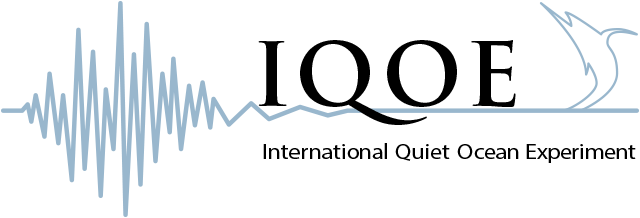The IQOE Science Plan published in 2015 featured the concept of an International Year of the Quiet Ocean (IYQO). This year would seek quieting of the ocean in specific areas to study how much human additions of sound could be reduced and how organisms would react, as well as more generally focus effort on IQOE-related observations and research. The IQOE Science Plan suggested the IYQO as year 7 of the 10-year IQOE project. IQOE also foresaw studies that would take advantage of serendipitous events that change ocean noise levels.
During Year 5 of the IQOE project (2020) the COVID-19 pandemic provided an unanticipated interval of reduced sound levels larger than IQOE dreamed possible through an IYQO based on voluntary reductions of anthropogenic sound. Appreciating this extraordinary occurrence, IQOE has designated 2020 the International Year of the Quiet Ocean and is focusing project resources to encourage study of changes in sound levels and effects on organisms during 2020. Fortunately, the worldwide ocean acoustics community had deployed hundreds of hydrophones able to capture the ocean soundscape during 2019-2021.
IQOE-related teams are releasing software to enable comparable analyses of sound observations and a data management system to assemble data from observations in many different locations.
Preliminary results from individual studies of 2020 indicate that the effects on marine animal behavior of changes in human activities in different locations depend on particular features of local and regional sound source reductions, pandemic-mitigation policies adopted in each area, and national maritime and marine recreation cultures.
